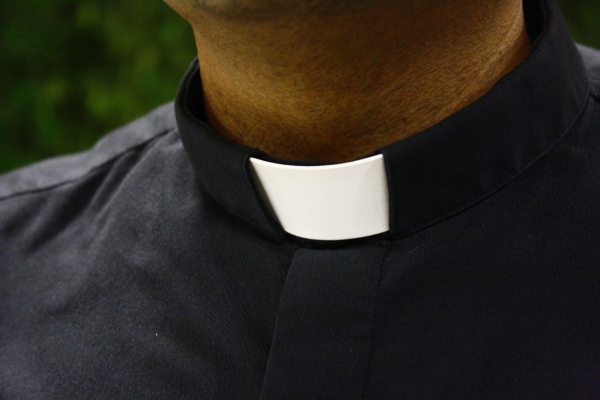
Did Fr. Sixtus Kimaro Get What He Deserved?
- Category: Faith
- Date 13-08-2006
- 994 views
A priest has been convicted and a sentenced. The Roman Catholic cleric Fr. Sixtus Kimaro (38) was last Wednesday found guilty of committing a repulsive transgression of interleaving his ghastly masculine dowel into the ignominious cleft at a young man’s bottom.
He was therefore handed a thirty-year jail sentence for sodomy, and ordered to pay two million shillings as compensation to the 17-year-old youth he was found guilty of polluting. Principal Resident Magistrate Pellagia Khaday, while passing the sentence, noted that the punishment was intended to be a deterrent to potential offenders, adding that the man of the cloth had indecently assaulted the youth and dehumanised him.
Dangers of sodomy
Clearly, the wayward churchman must have visited irreparable injury on the physical, psychological, spiritual and emotional status of the helpless boy. It has been suggested that sodomy (or homosexuality) is always dangerous to a person’s well being.
The rates of mortality (the likelihood of death) and morbidity (loss of interest in life) are said to be substantially higher among homosexuals than among heterosexuals. Again, the risk of anal cancer rises by as much as four thousand percent (4,000%) for men who engage in anal intercourse with other men. Add to this the tearing of the rectal lining and the accompanying diseases, which begin from all contact with faecal matter.
Scientific verification also shows that homosexual practices place their participants at the risk for mental and physical illness. The relationship between homosexuality and psychosis (mental illness) converges on the same conclusion: that homosexual people are at a substantially higher risk for some forms of emotional problems, including suicidal tendencies, major depression and anxiety disorders.
What is Sodomy?
Sodomy occurs when there is contact between the sexual organs of one person, and the mouth or anus of another. Anyhow, it is condition understood as outright sexual deviation. In its contemporary context, sodomy is generally used to mean anal sex.
The word sodomy is said to have originated in the eleventh century, having been coined by Saint Peter Damian to replace the earlier term, "Sin of Sodom". This was also a direct reference to Sodom and Gomorrah, the cities recorded in the Bible, which were destroyed by God for their unredeemable moral depravity.
The story of Sodom shows that the people were prone to gross sexual immorality, and as a result were destroyed. It is commonly believed that Leviticus 18 lists sexual crimes that, if followed, would result in the society being "defiled. Thus, throughout history sodomy has been viewed as an "ungodly practice" that might bring divine retribution against a society.
However, other sins could also be as grave as sodomy and might bring similar consequences. A deeper biblical scrutiny shows that the sins of Sodom were not merely sexual in nature; they were many. In the Book Ezekiel, the people’s transgressions included: pride, gluttony, idleness, as well as oppression and neglect of the needy. The act of attempted homosexual gang rape may be read into Ezekiel’s text, serving to emphasise that the Sodomites' were extensively depraved, not rather uniquely homosexual.
In fact, a thirteenth century Jewish scholar Nachmanides wrote, "According to our sages, (the people of Sodom) were notorious for every evil, but their fate was sealed for their persistence in not supporting the poor and the needy."
Do we sympathise with Fr. Kimaro?
Considering the grave mischief he inflicted on his victim, our sympathies would be misplaced. For as pointed out above, the consequences of his crime might afflict the young boy for life. And as the Judge mentioned, the priest was supposed to be a role model.
Nevertheless, scholars suggest that homosexuality may be a "developmental error … associated with … mental illness." It is thus possible that the aberrant priest is not a normal person and could have required a psychiatrist. I am not sure if his attorney chose to portray his client as an upright individual.
The Judge’s reason that the punishment was intended to be a deterrent to potential offenders might not hold therefore. Deeper remedies might be necessary.
By Venansio Ahabwe
Source: Peering Eye, Sunday Citizen
